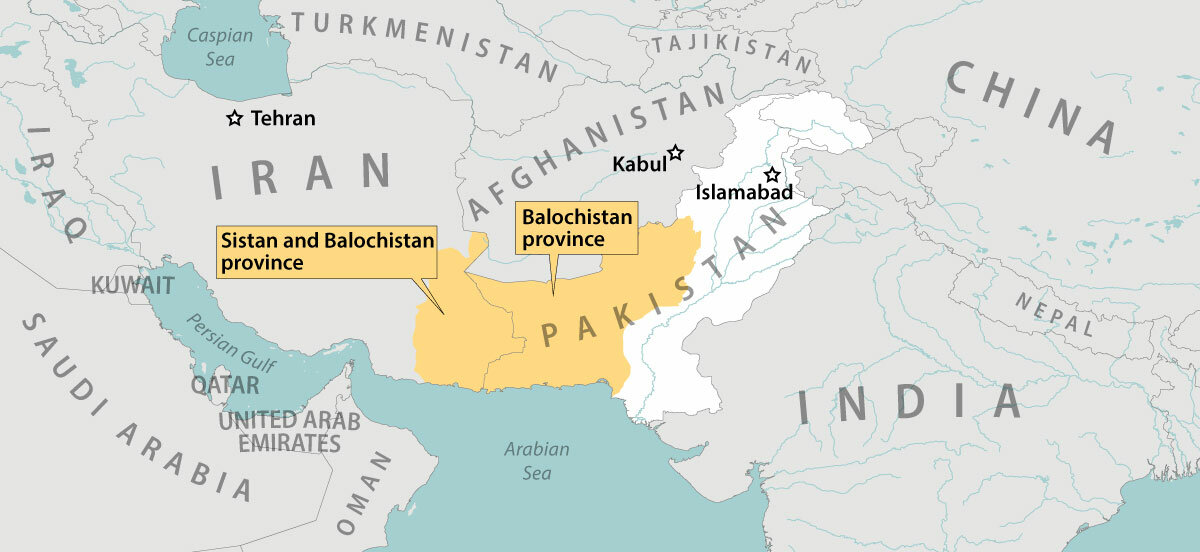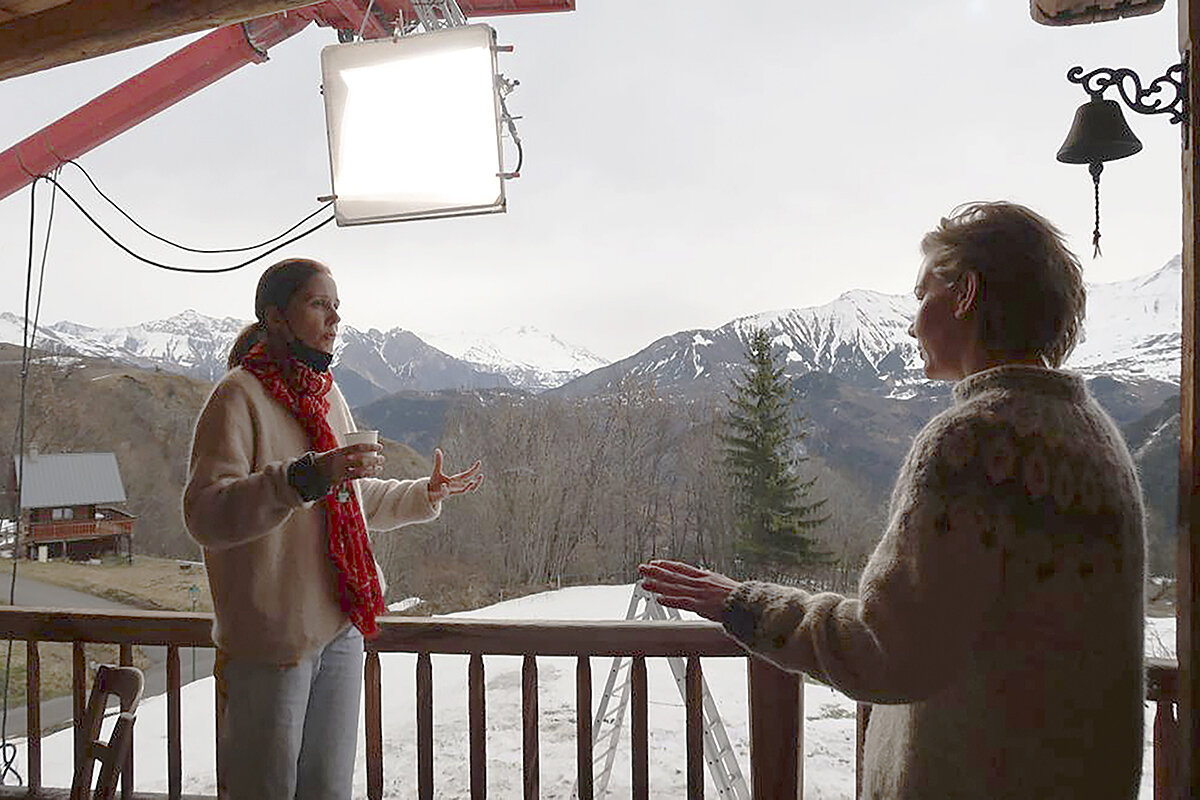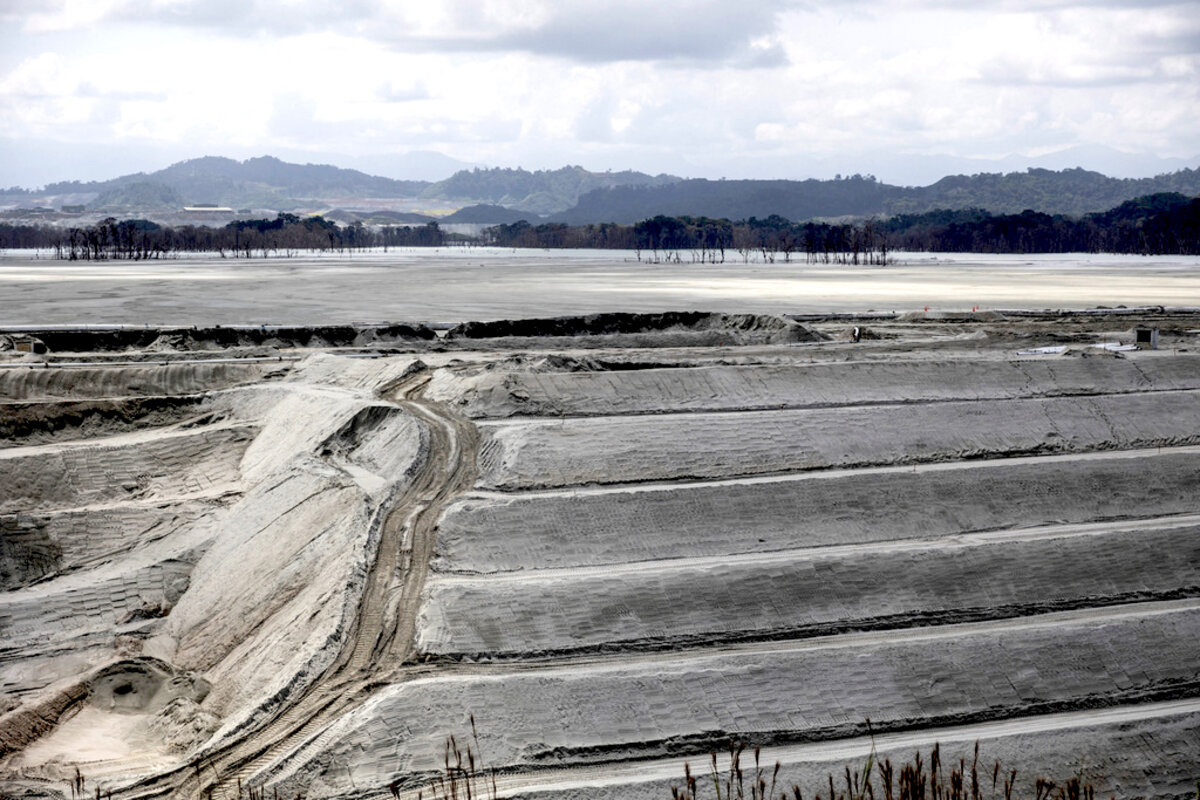Ten years after individual states began legalizing marijuana, signs of a shift in perspective surface. Behind the growing commercial presence lie people’s preferences, states’ power – and unanswered questions.

Why is Christian Science in our name?
Our name is about honesty. The Monitor is owned by The Christian Science Church, and we’ve always been transparent about that.
The Church publishes the Monitor because it sees good journalism as vital to progress in the world. Since 1908, we’ve aimed “to injure no man, but to bless all mankind,” as our founder, Mary Baker Eddy, put it.
Here, you’ll find award-winning journalism not driven by commercial influences – a news organization that takes seriously its mission to uplift the world by seeking solutions and finding reasons for credible hope.
Explore values journalism About usMonitor Daily Podcast
- Follow us:
- Apple Podcasts
- Spotify
- RSS Feed
- Download
 Mark Sappenfield
Mark Sappenfield
I got a pleasant surprise in my email inbox last week: A newsletter from Monitor reader and friend Amanda Ripley. As a journalist herself, she’s written about her appreciation for what the Monitor does, and we’ve written about our appreciation for what she does.
Her newsletter is as lovely as you would expect – about how journalism can build dignity, agency, and hope. Her top story was close to my heart (I’m a former Afghanistan correspondent). It’s about the extraordinary achievements of a platoon of Afghan women. I hope you’ll give it a read.
Already a subscriber? Log in
Help fund Monitor journalism for $11/ month
Monitor journalism changes lives because we open that too-small box that most people think they live in. We believe news can and should expand a sense of identity and possibility beyond narrow conventional expectations.
Our work isn't possible without your support.
Today’s stories
And why we wrote them
( 17 min. read )
Today’s news briefs
• Supreme Court on immigration: The Supreme Court of the United States agrees to temporarily let Border Patrol agents cut the razor-wire fencing that Texas officials placed along part of the state’s border with Mexico to deter illegal border crossings.
• San Diego floods: Flash floods inundate homes and overturn cars in Southern California as a whopping 3 inches of rain falls near San Diego.
• California professors strike: A union representing 29,000 professors and staff at the California State University system reaches a tentative deal to call off a five-day strike after one day.
• Dixville Notch votes: The six voters of the New Hampshire community choose Nikki Haley. The town has a tradition of first-in-the-nation primary voting that dates back to 1960, with the results typically announced just a few minutes after midnight.
( 4 min. read )
Next, we have two stories about artificial intelligence and how it is changing hiring and learning. First, we look at the trend of companies embracing AI hiring tools despite flaws in machine-based interviewing and charges of discrimination. Can machines truly pick the best workers?
( 5 min. read )
In schools, educators are trying to balance concerns about artificial intelligence with how to prepare students for using it in the future. What does teaching look like when AI is part of the curriculum?
( 4 min. read )
It took only 48 hours and two rounds of missiles for trust to break down between Iran and Pakistan. Understanding why Iran struck its neighbor – and what each country can do to boost security – will help in working to restore lost trust.
( 5 min. read )
Hollywood used to act as a kind of chamber of commerce, handing out its golden guy to locally made movies. But great art doesn’t just come from one ZIP code, or one language. This year’s nominees for best picture are the most international in history.
The Monitor's View
( 2 min. read )
The world’s transition to green energy poses an inconvenient conundrum: how to avert one environmental crisis without creating another. To fuel that shift, mining for the ores needed in renewable technologies is set to expand rapidly over the next quarter century – by as much as 50% for uranium and 500% for lithium, according to various estimates.
Much of the current activity is happening in the absence of reliable data. A study published by Nature this month found that more than half (56%) of mining areas visible by satellite have no known reported production information. That makes enabling the needed growth while also mitigating the impact of extraction more difficult.
Some in the industry are now aiming to correct that. The International Council on Mining and Minerals, a trade group representing more than 60 of the world’s largest mining companies and mining associations, adopted what it hailed as a groundbreaking commitment to protect nature and communities near mines. Members promised to disclose the environmental risks of all projects by 2026 and ensure they cause no net loss of biodiversity by 2030.
Industrial greenwashing? Time will tell. But the council’s new rules neatly frame the start of a year in which transparency will become a critical tool in addressing climate change. By December, all 195 signatories to the 2015 Paris Agreement must submit their first biennial transparency reports measuring their progress toward meeting the shared goals of the climate accord.
That coincides with efforts by a growing number of governments to strengthen the accountability of mining companies through data transparency and engagement with local communities – particularly Indigenous peoples – whose lands abut their worksites. In a workshop on transparency at the United Nations climate conference in Dubai, United Arab Emirates, last month, experts asked participants to describe what the term meant to them in practice. Responses included “common understanding,” “empowering communities,” and “building trust.”
To accelerate solutions to climate change, “transparency issues must be resolved,” notes Christopher Martius, an energy expert at the Center for International Forestry Research in Bogor, Indonesia. “Better data coherence can increase trust and accountability, as can improved participation and access to data,” he argued at the Dubai gathering.
On another front, the mining industry faces many anti-corruption investigations. The Organization for Economic Cooperation and Development estimates that 1 in 5 foreign bribes involve an extractive project. Now the industry faces demands for higher standards of environmental care. Its new rules are an acknowledgment that, more than ever, permits to dig deep depend on cultivating higher ideals.
A Christian Science Perspective
Each weekday, the Monitor includes one clearly labeled religious article offering spiritual insight on contemporary issues, including the news. The publication – in its various forms – is produced for anyone who cares about the progress of the human endeavor around the world and seeks news reported with compassion, intelligence, and an essentially constructive lens. For many, that caring has religious roots. For many, it does not. The Monitor has always embraced both audiences. The Monitor is owned by a church – The First Church of Christ, Scientist, in Boston – whose founder was concerned with both the state of the world and the quality of available news.
( 3 min. read )
Considering the nature of existence as spiritual, rather than physical, opens the door to healing.
Viewfinder

A look ahead
Thank you for joining us today. Before we let you go, we want to make sure you know about the online event we’re holding on Thursday, Jan. 25, at 7 p.m. Eastern time.
It will be a deeper dive on how young people whose lives have been shaped by climate change are now leading the charge to find solutions. These are remarkable stories of innovation and determination that can change the way you see the issue.
You can find the Facebook Live page here. Be sure to bookmark it and come back Thursday.









